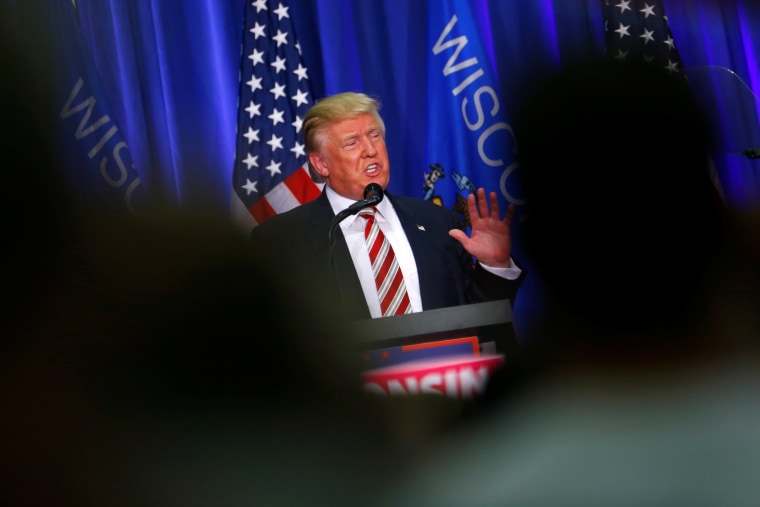Donald Trump received his first briefing yesterday from U.S. intelligence officials, though there's a limit as to how much information he received. As NBC News' report explained, the briefing, which lasted about two hours, described "how U.S. intelligence agencies see a variety of global issues," but did not describe "espionage methods, covert operations or nuclear secrets." Rachel's segment from Tuesday explored this in more detail.
What we don't know is how engaged the Republican presidential hopeful was during the meeting. As TPM reported yesterday, Trump said ahead of the briefing that he's wary of the U.S. intelligence community and doesn't necessarily consider the agencies reliable.
During an interview with Fox News, Trump was asked about his upcoming intelligence briefing and whether he does "trust intelligence." "Not so much from the people that have been doing it for our country. Look what's happened over the last ten years. Look what's happened over the years. It's been catastrophic," he said in response. "And in fact, I won't use some of the people that are sort of your standards, you know, just use them, use them, use them. Very easy to use them, but I won't use them because they've made such bad decisions."
At a certain level, some criticisms of the CIA, for example, are understandable. Credible critics of the intelligence community can point to real and important missteps, and no one should suggest the agencies are beyond reproach.
But let's not miss the forest for the trees here. Donald J. Trump, if elected president, is inclined to ignore "the people that have been doing it for our country." The "it" in that sentence refers to the collection of sensitive security information provided to American policymakers.
The next question is obvious: if the GOP candidate doesn't want to rely on U.S. intelligence agencies, who exactly would Trump listen to when making critical security decisions?
Indeed, it shouldn't be lost on anyone that Trump considers Alex Jones, the National Enquirer, and Breitbart News to be credible outlets, but the Republican nominee adopts a far more skeptical posture when it comes to the Central Intelligence Agency.
I'm reminded of something Vox's Ezra Klein wrote in March: "Among the most important tasks the president has is knowing what to believe, whom to listen to, which facts to trust, and which theories to explore. Trump's terrible judgment in this regard is one of the many reasons he's not qualified for the office."
That was five months ago. The concerns about Trump's judgment are even more acute now.
